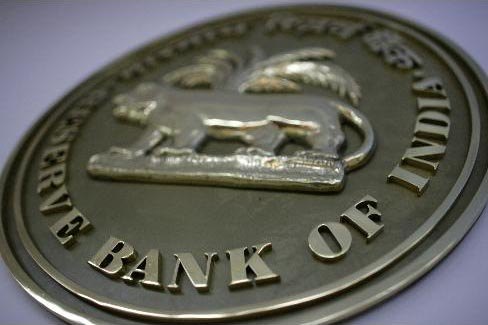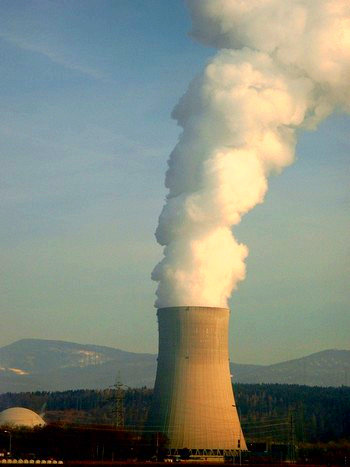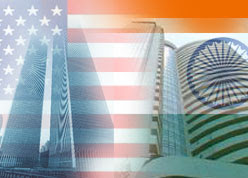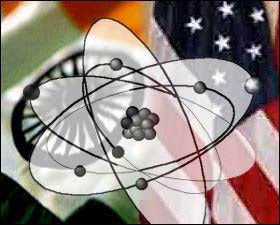
The House of Representatives has wrapped up the 40 minute debate on the bill on the Indo-US nuclear deal since the voting on the bill will take place later tonight.
Meanwhile, Senate Majority leader Harry Reid has indicated that the legislation on the subject in the upper Chamber will be taken up and passed only next week.
However, support for the nuclear deal came from House Foreign Affairs Committee Chairman Howard Berman.
A known opponent of the deal, Berman, supported the Senate version of the Bill saying the deal is a positive step as it will bring India into the non-proliferation regime.
House Foreign Affairs Committee Chairman Howard Berman, a known opponent of the deal, supported the Senate version of the Bill saying the deal is a positive step as it will bring India into the non-proliferation regime.
Fellow Democrat Edward Markey, who lead the charge on behalf of those opposed to the Bill, insisted on a recorded vote at the end of the debate following which the voting was postponed and it is now expected to be taken up on Sunday.
"I'm a strong advocate of closer US-India ties, including peaceful nuclear cooperation. I voted for the Hyde act which established a framework for such cooperation. The bill before us today will approve the US-India agreement for peaceful nuclear cooperation," Burman said.
"Integrating India into a global nonproliferation regime is a positive step," he said, adding Bush Administration has assured him they will push for an NSG decision prohibiting the export of enrichment and reprocessing equipment and technologies to states that are not party to Non-Proliferation Treaty (NPT).
Fellow Democrat Ellen Tauscher, however, disagreed maintaining that the Bill flies in the face of decades of American leadership to contain the spread of the weapons of mass destruction.
"The India deal would give a country with a dismal record of nonproliferation all the benefits of nuclear trade with none of the responsibilities. India has been denied access to the market for three decades and for good reason."
"India is not a signatory of the nonproliferation treaty and has not agreed to disarmament or signed the treaty," Congresswoman Tauscher said.
The debate on the House floor brought out law makers along expected lines in supporting and opposing the revised Bill introduced by Chairman Berman, who had reservations over the deal and is understood to have brought the second version after senior Bush Administration officials talked to him on the need for early nod to the civil nuclear initiative.
However, the Congressman said he still has concerns about ambiguities in the agreement and that several documents should be inserted to clarify these.
"These documents constitute key and dispositive parts of the authoritative representations described in section 102 of this bill which gives the right to disapprove a presidential decision to resume civil nuclear cooperation with any country, not just India, that tests a nuclear weapon.
"It will also ensure that India takes the necessary remaining steps to bring its IAEA safeguards agreement fully into force and include an additional protocol...I will be voting for H R 7081," the senior Democrat said at the end of his opening statement.
Ranking Republican on the House Foreign Affairs Committee Ros Lehtinen also voiced support for the legislation.
"The US-India nuclear cooperation agreement is not one we would offer to just any nation. It is a venture we would enter into only with our most trusted, democratic allies. I believe that stronger economic, scientific, diplomatic and military cooperation between the US and India is in the national interest of both countries," the Florida Congresswoman said.
"... this nuclear cooperation agreement is essential in continuing to ensure India's active involvement in dissuading, isolating, and if necessary sanctioning and containing Iran for its efforts to acquire chemical, biological and nuclear weapon capabilities," Ros-Lehtinen said.
A strong supporter of India and currently the Chair of the Sub Committee on Middle East and South Asia Democrat Gary Ackerman strongly supported the Bill.
"It (the approval of the deal) means the IAEA will be able to inspect two-thirds of India's nuclear facilities because those will be under safeguards and all civilian nuclear facilities will also be under safeguards. For the first time ever India will commit to guidelines and will adhere to the NSG guidelines," Ackerman said.
The deal will send a clear message to "rogue states" that responsible nuclear powers are welcomed by the international community, the former Co-Chair of the Congressional India Caucus on India and Indian Americans said.
"India would pursue its national interests as it's been doing outside of the nonproliferation mainstream and we get to inspect nothing. The other is to make a deal with India and the US and the international community will get a window in perpetuity into two-thirds of India's nuclear facilities...”
"The choice is clear, it's time for 21st century policy toward India and encourages India's growth as a nuclear power and solidifies our relationship for decades to come," the New York Democrat said.
But another Democrat from California Lynn Woolsey cautioned the agreement will permanently undermine decades of nonproliferation efforts.
"It sets a frightening precedent. If a country is unhappy about the rules of nuclear possession, it can simply go around them, breaking them."
"And what does it matter India ignored the international agreement? Any sanction? Any punishment? Nope. Just a lucrative deal with the US. If we approve this deal, we lose our moral high ground," she added.
For most part of the debate, the support for the Bill came along bi-partisan lines.
Massachussetts Democrat Markey, the top opponent of the Bill, questioned not only the judgement of Bush administration in going for the deal but also the non-proliferation gains.
"Most people think this is a debate about India. It is not. This is a debate about Iran, North Korea, Pakistan, Venezuela, about any other country in the world that harbours the goal of acquiring nuclear weapons. With this vote, we are shattering the nonproliferation rules, and the next three countries to march through the broken glass will be Iran, North Korea, and Pakistan," Markey said in closing comments.
"This is an all out nuclear arms race. Pakistan will respond. That is what President Bush should be working on, not fueling it, but trying to negotiate an end to it," he said.
A prominent supporter of India South Carolina Republican Joe Wilson argued a vote in favour of the nuclear deal will be a "giant step forward" in strengthening America's partnership with the people of India.
"... the two nations have a vested and shared interest in expanding opportunities to compete in the global economy. US chamber of commerce has estimated that this civilian nuclear agreement will create as many as 250,000 high-tech jobs right here in America," Wilson said.
California Republican Ed Royce called the Hyde Act as a tremendous foreign policy achievement of the 109th Congress but added the "failure by this congress to push this agreement across the finish line would be foreign policy malpractice".
"The Indian nuclear industry will overcome international restrictions and will reach their full potential to do this. Opposing this won't effect India. It will only hurt our relationship with India and US interests... other countries, notably France and Russia, can enter the Indian nuclear market with a potential USD 100 billion investment," he said.



























